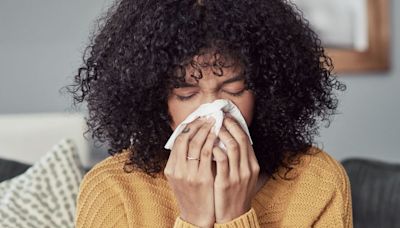Search results
Aug 16, 2022 · Updated on August 16, 2022. Key takeaways: We don’t know exactly how long COVID-19 antibodies last for, but it is much safer to gain antibodies from the vaccine than from getting COVID-19. People who have had COVID-19 and recovered create antibodies. But not everyone gains immunity to the virus, especially with milder illness and newer variants.
- www.mayoclinic.org
- › …
- › Tests & Procedures
Dec 20, 2022 · After infection with the COVID-19 virus or a COVID-19 vaccine, your body can take 2 to 3 weeks to make enough antibodies to be found in an antibody test. So it's important that you're not tested too soon. Antibodies may be remain in your blood for many months. These antibodies are thought to give some form of immunity to the COVID-19 virus.
Jan 23, 2024 · A 2021 study found 98% of people had antibodies against SARS-CoV-2’s spike protein (a protein on the surface of the virus that allows it to attach to our cells) one month after symptom onset....
- www.nih.gov
- › News & Events
- › NIH Research Matters
Jan 26, 2021 · Antibodies against the spike protein of SARS-CoV-2, which the virus uses to get inside cells, were found in 98% of participants one month after symptom onset. As seen in previous studies, the number of antibodies ranged widely between individuals.
A study suggests that people’s immune systems remember COVID-19 for months after recovery. The immune system makes different types of cells and molecules to fight disease. These include antibodies, T cells, and B cells.
Jun 30, 2021 · How long do antibodies against covid-19 stay in the body? Data indicate that neutralising antibodies last for several months in patients with covid-19 but gently fall in number over time.
- www.who.int
- › Newsroom
- › Questions and answers
- › item
Antibodies that work against SARS-CoV-2 – the virus that causes COVID-19 – are usually detectable in the first few weeks after infection. The presence of antibodies indicates that a person was infected with SARS-CoV-2, irrespective of whether the individual had severe or mild disease, or no symptoms.


